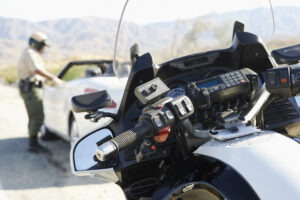“Sudden cardiac death” often isn’t all that sudden, and lives can be saved by training people about the symptoms of impending cardiac arrest and what action to take, a German study shows. The study is reported by Forbes.
Early Symptoms Can Warn of Sudden Cardiac Death
Early recognition of the symptoms and prompt medical attention can be a lifesaver.
“A study of 406 sudden cardiac death patients indicates that they often have symptoms, especially the typical symptom angina pectoris [chest pain] for as long as 120 minutes before an arrest,” said study lead author Dr. Dirk Muller, a cardiologist and emergency physician at the Medical Clinic II, Cardiology and Pulmonology, in Berlin.
The researchers collected information about symptoms preceding cardiac arrest for 323 patients. The most common warning sign was chest pain, which occurred for at least 20 minutes, and, in some cases, for hours, before cardiac arrest. Chest pain occurred in 25 percent of the patients whose cardiac arrest was witnessed by other persons and in one-third of other cases.
Breathlessness was the next most common symptom, seen in 17 percent of witnessed arrests and 30 percent of other cases. Other common symptoms were nausea, vomiting, dizziness or fainting.
There are two significant messages from the study, said Dr. Ann Bolger, a professor of clinical medicine at the University of California, San Francisco, and a spokeswoman for the American Heart Association.
“The first is that people need to be educated about how cardiac symptoms can present,” Bolger said. “We always try to encourage people not to discount such things as shortness of breath, things that really should demand a response, because they could be a harbinger of early death.
“The second thing is that the family is important,” she added. “Many of these patients have a known history of heart problems. They are not taking us by surprise. We know that one of these things can happen to them, so, it is important to get education that if there is chest pain that does not respond to nitroglycerine, they should call 911. When a patient has active heart disease, I try to make sure that they and their family get basic training about calling 911 and get the emergency medical service on the scene. People who don’t get CPR before they get to the hospital have much worse outcomes.”
According to the American Heart Association, cardiac arrest is the sudden loss of heart function. The victim may or may not have diagnosed heart disease; the most common cause of death is coronary heart disease.
The AHA estimates that 330,000 Americans die each year from heart disease before reaching a hospital and urges CPR training on a large scale.

The Legal Examiner and our Affiliate Network strive to be the place you look to for news, context, and more, wherever your life intersects with the law.













Comments for this article are closed.